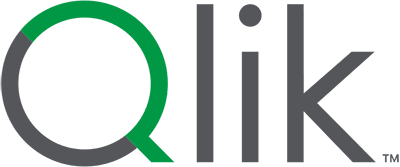Qlik Survey: Mexico Surpasses China as the Top Tariff Disruptor, Reshaping U.S. Supply Chains
Qlik Survey: Mexico Surpasses China as the Top Tariff Disruptor, Reshaping U.S. Supply Chains
Nearly half of companies cite Mexico as their biggest tariff-related challenge, while 54% are stockpiling goods—signaling a shift away from just-in-time supply chains
PHILADELPHIA--(BUSINESS WIRE)--Unstable trade policies are accelerating supply chain transformations, with companies making real-time shifts to stay competitive. A new survey of 500 supply chain and procurement professionals by Qlik®, a global leader in data integration, data quality, analytics, and artificial intelligence (AI), reveals that 49% of companies now see Mexico as their biggest tariff-related disruption—more than those citing China (45%). To mitigate risks, 54% are stockpiling goods, moving away from lean supply models in favor of domestic sourcing and trade adjustments.
Businesses are no longer waiting for trade policies to stabilize—they are redesigning supply chains on the fly. The Qlik Tariffs Survey found that 64% of companies began preparing for trade shifts before the 2024 U.S. election, while 36% are now racing to adjust. Industries like automotive, manufacturing, and aerospace are driving change with half of companies sourcing more from domestic suppliers and 43% leveraging free trade zones to reduce tariff exposure. Meanwhile, 75% of executives are highly concerned about the impact of tariffs on their companies and daily operations.
- Mexico has overtaken China as the biggest tariff disruptor, forcing supply chain realignments: 49% of companies cite Mexico as their top tariff-related challenge, compared to 45% for China. In automotive, 73% of executives rank Mexico as their biggest concern—nearly double the 38% who cite China.
- Companies are abandoning just-in-time supply chains and stockpiling instead: 54% of businesses have increased on-hand inventory of international goods to hedge against tariffs. Stockpiling is highest in aerospace (64%) and large enterprises (57%), reflecting a shift in risk management.
- Corporate decision-making is shifting—VPs acted faster than the C-Suite: 72% of VPs & Managing Directors began preparing for tariffs before the 2024 election, compared to 56% of the C-Suite. Meanwhile, 44% of C-Suite leaders waited until after the election, while only 28% of VPs delayed action.
- Companies are reshaping sourcing, trade models, and payment strategies to sidestep tariffs: 50% are increasing domestic sourcing, led by 62% in automotive and 55% in manufacturing, while 43% are leveraging free trade zones to reduce tariff exposure. Additionally, 44% are frontloading payments before tariffs take effect, securing pricing amid trade uncertainty.
- Companies are adapting quickly, but AI adoption remains low: 79% of businesses have adjusted to tariffs, either by planning ahead (39%) or reacting quickly (36%). Yet fewer than 40% use AI for trade decision-making, and only 34% leverage predictive analytics. AI adoption is particularly low in retail (23%) and healthcare (21%).
"The days of static supply chains and gut-driven decisions are over—trade policies now shift in real time," said Mike Capone, CEO of Qlik. "Companies can’t rely on historical models or instinct alone; agility and data-driven foresight must become core business capabilities. Those who dynamically adapt their strategies will lead, while those stuck reacting will inevitably fall behind."
Companies that can anticipate and adapt to tariff shifts will gain a lasting competitive edge. The Qlik Tariffs Survey highlights a fundamental shift—businesses are moving beyond reactionary trade strategies toward proactive decision-making. As supply chains grow more complex, real-time data, predictive analytics, and AI-driven insights will be critical in navigating an increasingly uncertain trade landscape. This shift is also elevating supply chain leadership—76% of executives believe tariff uncertainty is strengthening their job security, reinforcing the growing strategic role of supply chain expertise.
Methodology
The Qlik Tariffs Survey was conducted by Wakefield Research among 500 U.S. supply chain and procurement executives, working in retail, automotive, manufacturing, aerospace or healthcare, between February 24th and March 7th, 2025, using an email invitation and an online survey. Representative quotas were set for each industry.
About Qlik
Qlik converts complex data landscapes into actionable insights, driving strategic business outcomes. Serving over 40,000 global customers, our portfolio provides advanced, enterprise-grade AI/ML, data integration, and analytics. Our AI/ML tools, both practical and scalable, lead to better decisions, faster. We excel in data integration and governance, offering comprehensive solutions that work with diverse data sources. Intuitive analytics from Qlik uncover hidden patterns, empowering teams to address complex challenges and seize new opportunities. As strategic partners, our platform-agnostic technology and expertise make our customers more competitive.
© 2025 QlikTech International AB. All rights reserved. All company and/or product names may be trade names, trademarks and/or registered trademarks of the respective owners with which they are associated.
Contacts
Media Contact
Keith Parker
keith.parker@qlik.com
512-367-2884
